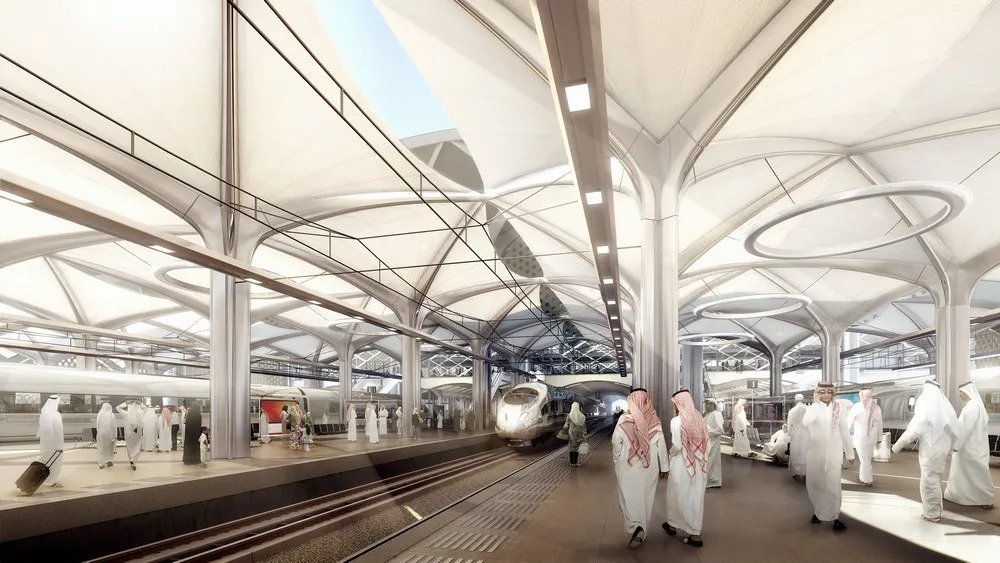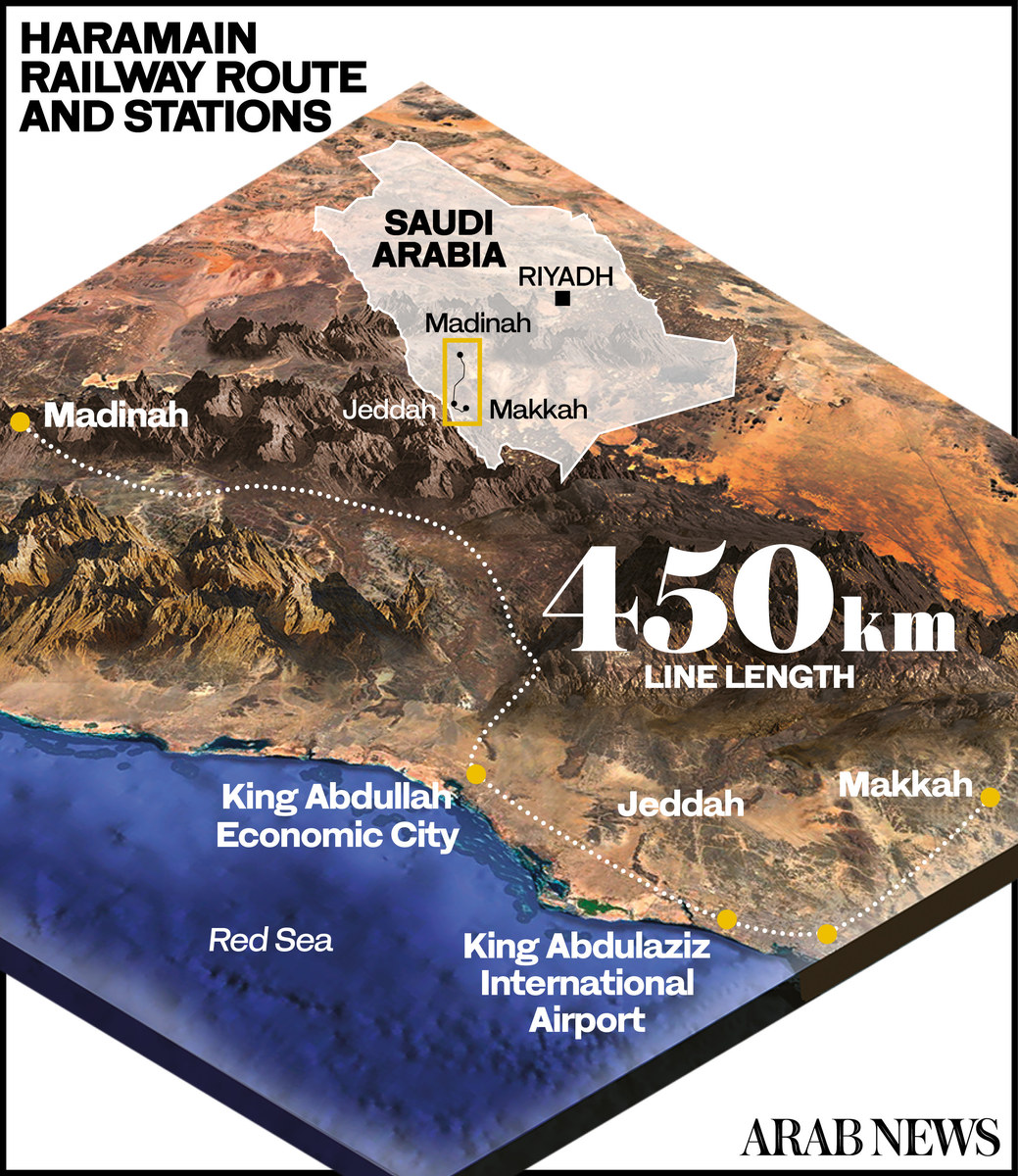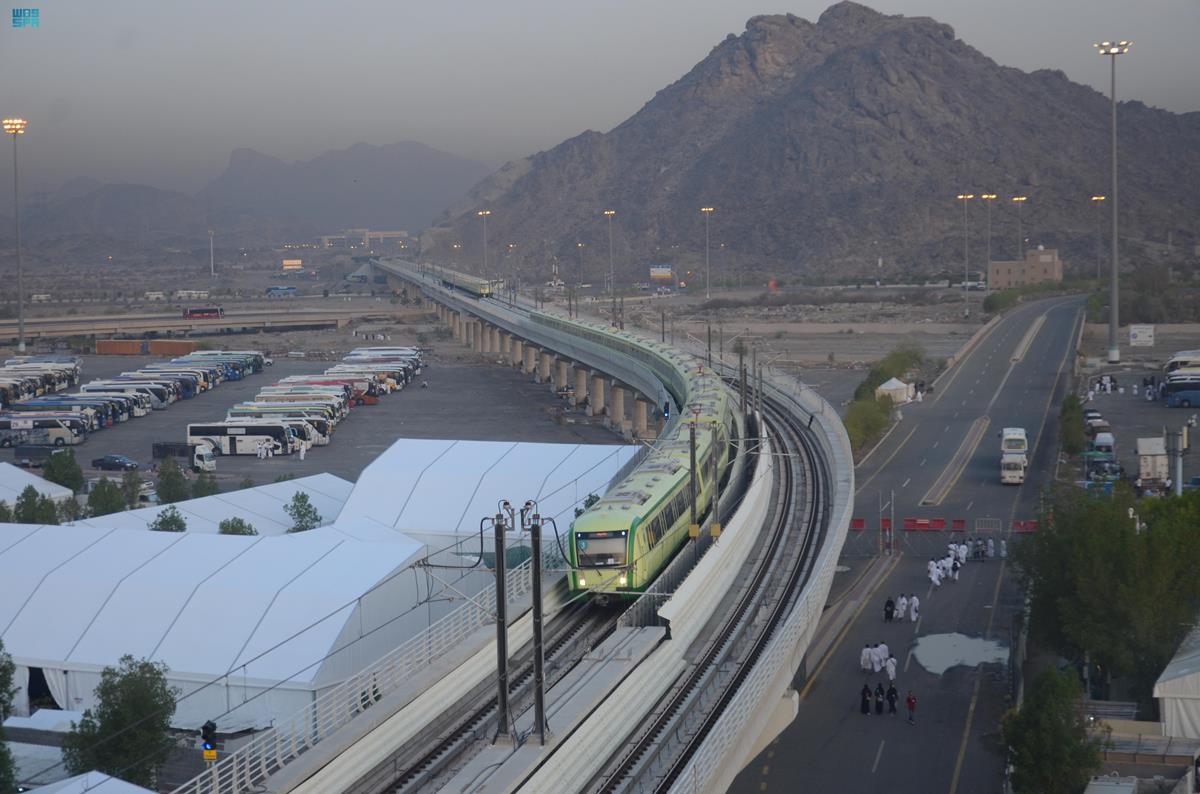MAKKAH: For millions of Muslims worldwide, the pilgrimage to Makkah for Hajj used to be arduous. However, Saudi Arabia has established new transport infrastructure to ensure the smoothest possible journey and easier access to the holiest site in Islam.
With approximately 2.5 million pilgrims converging on Makkah, whether from the Red Sea port city of Jeddah or the holy city of Madinah, their focus remains unwavering — completing their pilgrimage.
Hajj, the fifth pillar of Islam, is an obligatory act for physically and financially-able Muslims to perform at least once in their lifetime. Historically, pilgrims endured weeks or even months of travel on caravans, crossing vast oceans and deserts.
Over the centuries, as civilizations, nations and empires rose and fell, the responsibility for protecting and serving pilgrims undertaking Hajj and Umrah was passed down from one leader to the next.

The Haramain High-Speed Railway connects Makkah, Madinah and Jeddah. (SPA)
Today, the modern Kingdom of Saudi Arabia continues this tradition, making remarkable progress in the services provided to pilgrims, particularly in terms of technology and transport infrastructure.
A key part of this is the seamless connectivity between the cities of Makkah and Madinah, as well as the holy sites within Makkah. Saudi Arabia has achieved this by ensuring easy accessibility, convenience, and reduced travel times.
Upon arriving in Makkah, Ameera Alnajjar, a pilgrim from Dammam, opted for the simplest and most modern mode of transportation — the Haramain High-Speed Railway, or HHR.
“Taking the train was an excellent choice,” Alnajjar told Arab News. She was particularly impressed by the new train station, reminiscent of an airport, and extremely helpful staff.
The HHR’s 450 km railroad network connects Makkah to Madinah via five stations, including Al-Sulimaniyah in Jeddah, King Abdulaziz International Airport, and King Abdullah Economic City. The majority of pilgrims join the train at either Madinah or Jeddah.
Since its official opening in 2018, HHR trains have reached speeds of up to 300 kph, significantly reducing travel times between the holy cities. What once took more than four hours by car now takes half the time by train.

Similarly, the journey from Jeddah to Makkah, which could take hours due to traffic congestion, is now accomplished in just under an hour by train.
Renowned for its modern and comfortable facilities, the HHR offers spacious seating, onboard entertainment, and various amenities.
“It’s the safest and easiest way to head to Makkah,” Refal Amin, a pilgrim from Mina, told Arab News, emphasizing the remarkable progress compared to her first Hajj two decades ago.
Amin, a private school administrator, said she prefers the HHR over other modes of transport due to its cleanliness, speed, and comfort, comparing it favorably to trains in Europe.
“This is a form of hospitality, in my opinion,” she told Arab News. “Taking care of our pilgrims is part of our Saudi nature. By providing high-quality train systems, we offer our guests a valuable gift.”

Train service operating at the holy sites in Makkah. (SPA)
Within Makkah’s holy sites, the Mashair Train, known as the Makkah Metro, plays a vital role in transporting pilgrims between the sacred sites of Mina, Arafat, and Muzdalifah during Hajj, mitigating traffic congestion.
The 18 km railroad accommodates thousands of pilgrims every hour. Since its launch in 2010, the design and functionality of the Mashair Train has focused on facilitating the movement of pilgrims, reducing congestion during boarding and disembarking.
The network, which offers multiple spacious carriages and frequent departures, incorporates modern facilities and technologies such as comfortable seating and air conditioning, enhancing the overall pilgrimage experience.
In 2022, Mashair Train transported approximately 70,000 pilgrims between Mina and Arafat every hour, at a rate of 3,000 pilgrims per trip, with a total of 2.35 million pilgrims throughout the season.
Both the HHR and Mashair Train operate under Saudi Arabian Railways, which has increased the number of HHR journeys for Hajj, offering more than 3,400 trips and over 1.5 million seats serving all stations between Makkah and Madinah, totaling 126 daily trips.




























